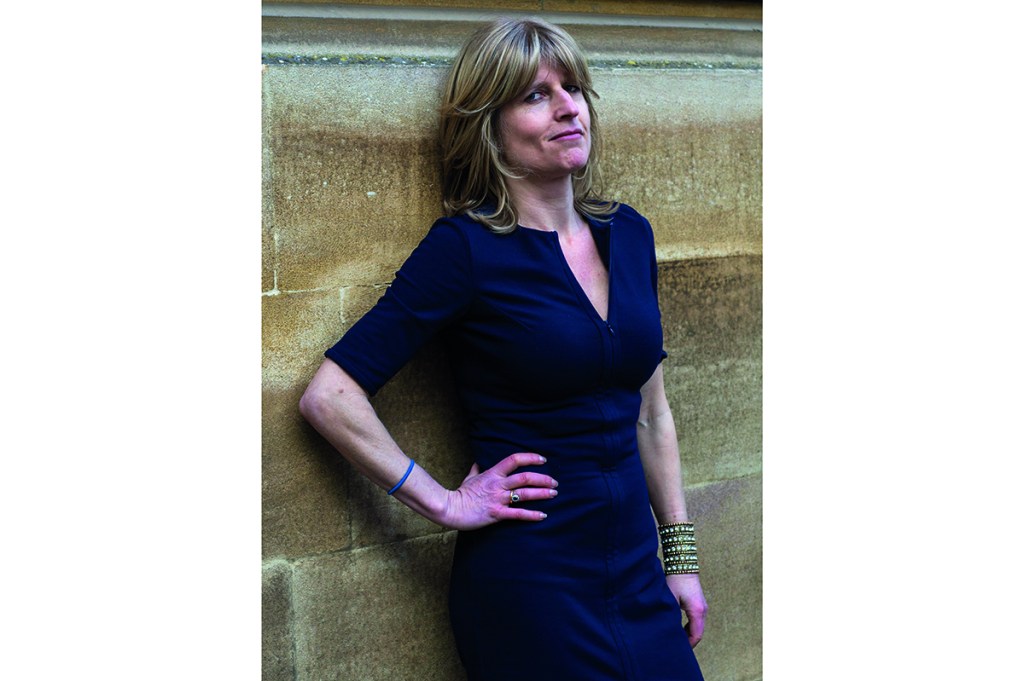Oh, to hell with the Olympian book review, that distanced and disinterested critique pronounced from on high. Our muses may dwell on a mountaintop, but we writers live on the molehill of our trade. An ant heap, actually, where every trifling insect in the little colony is kin.
We’re constantly caressing each other with our feelers, trading morsels of wit with our mandibles and pushing each other under the passing shoes of the reading public.
There’s no such thing as a book review without an agenda, any more than there’s such a thing as an ant that will leave your picnic lunch alone. My agenda here is to lavishly praise Rake’s Progress by Rachel Johnson. I like her, and she’s my friend. I freely admit to my affection for Rachel. Affection for Rachel demands affection for her book because Rake’s Progress is…so Rachel Johnson. Which is to say it’s armed to the teeth in a thoroughly disarming manner and sharply focused in every conceivable direction.
Also, it’s a very good book. I can tell because I read it and — what’s more significant among writer friends — I blurbed it. Furthermore — you’re welcome, Rachel — I blurbed it well:
‘Rachel Johnson, compelled by broad moral principle and close personal involvement, descends from the bright air of feature journalism to the dark ground of practical politics. Her view of the grass roots proves well worth the fall to earth. (At least for the reader — Rachel is left a bit bruised.) Deep in the weeds of politics there are creeping things, serpents more subtle than any beasts of the field, and the worm that dieth not. But the wallow of politicking also contains some pearls cast before swine, some buried treasures, and a rich loam of humor. After reading Rake’s Progress you’ll never think of running for office the same way. Indeed, you’ll never think of running for office at all.’
To add synopsis to sycophancy: Rachel, appalled by Brexit, decides to ‘stand athwart the tide of history’ (never mind that the Brexit ebb and flow is as confused as the tides of the Mediterranean, which doesn’t have any). She aligns herself with the forgettable and now forgotten Change UK (aka the Independent Group), a bipartisan effort to do some athwart-standing. (Tri-partisan effort, if the Liberal Democrats are counted as a functioning political party). Thereby Rachel finds herself failing miserably to be elected an MEP (Member of the European Parliament).
This needs to be explained to Americans. Which is hopeless, because no one can explain it to the British. As Rachel says, ‘If you knew the name of your local MEP, it meant you were the local MEP.’
Something else that needs to be explained to Americans is that Rachel Johnson is not Boris Johnson’s sister. I mean, she is Boris Johnson’s sister. But didn’t Gandhi say, ‘All men are brothers’? And is Rachel expected to make her book all about a bald vegetarian in a diaper?
Rachel is an acclaimed novelist (the Notting Hell trilogy) and a ubiquitous presenter and commentator on BBC TV and Sky News. She has been a columnist for the Daily Telegraph, Sunday Telegraph, Evening Standard, Sunday Times, and Mail on Sunday and was editor of the Lady (founded in 1885).
Of course Boris, being the presence he is, has a presence in Rake’s Progress, the more so since, with Brexit, he’s attempting to force down the throat what Rachel is trying to upchuck. But if you’re hoping to be a fly on the wall when the famously contentious Johnson clan gathers at home, you’ll be treated the way houseflies are in well-kept households. Rachel swats you, politely (not her default mode): ‘It is such fun being together and such a treat that we don’t want to ruin it.’ Although she does admit, ‘Occasionally, life can go a bit boxset (imagine Succession meets Game of Thrones in Chernobyl).’
What Rachel becoming a Change UK Member of the European Parliament was supposed to accomplish is anyone’s guess. And I’m not going to make one. We fought a rather long, nasty war here, 1775-1783, for the right to have no opinion about Brexit.
What Rake’s Progress does accomplish is showing politics for what it is, a busy tedium, a noise falling on deaf ears, a flurry of backstabbing with rubber daggers and a godawful way of deciding most matters of importance.
Think about how we use the word ‘politics’. Are ‘office politics’ ever a good thing? When somebody ‘plays politics’ to get a job or promotion, does he or she deserve it? When we call a colleague ‘a real politician’, is that a compliment?
Politics is the idea that all of society’s needs can be met politically. This is like a cookbook where the recipe for everything is to fry it. The fruit cocktail is fried. The soup is fried. The salad is fried. So is the ice cream and cake. And your Château Latour is rolled in breadcrumbs and dunked in the deep-fat fryer. That is no way to prepare a social banquet.
***
Get three months of The Spectator for just $9.99 — plus a Spectator Parker pen
***
Where Rachel Johnson fails — and even the most slavish reviewer must carry a grain of criticism or be expelled from the ant nest — is in not listening to her mother.
Rachel’s mother, the painter Charlotte Johnson Wahl, had a family maxim, a precept all the Johnson children treasure but by which none of them can abide (especially not Rachel and Boris). The apothegm applies to most of life’s crises, midlife or otherwise, and particularly to crises labeled political:
‘It is urgent to do nothing.’

























